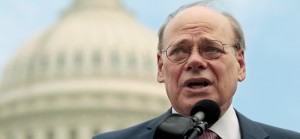 On May 24, 1949, pediatrician Morris Cohen and his wife Genevieve welcomed Stephen Ira Cohen into the world, the fourth generation of their family to live in the city of Memphis.
On May 24, 1949, pediatrician Morris Cohen and his wife Genevieve welcomed Stephen Ira Cohen into the world, the fourth generation of their family to live in the city of Memphis.
Steve took an early interest in politics at the age of five when stricken with polio. When he was eleven years old, John Fitzgerald Kennedy came to Memphis on a campaign stop, and Steve took a picture of him that still hangs in his office to this day.
After graduating from the Cecil Humphreys School of Law at the University of Memphis, Steve became a legal advisor for the Memphis Police Department, while simultaneously serving as vice president of the 1977 Tennessee Constitutional Convention.
From 1978-80, he served as Shelby County Commissioner. While a commissioner, he was a key player behind the establishment of The Med. And in 1982, he was elected to the Tennessee General Assembly as State Senator from District 30.
As a Tennessee State Senator, he fought for eighteen years to overturn the state’s ban on lotteries so he could establish a scholarship fund for the children of Tennessee. In 2002, his efforts came to fruition, and the following year, the Hope Scholarship became a reality. Thousands of students from across Tennessee are attending college because of his hard work.
He also championed bills granting greater access to medical care, the protection of animal welfare, the reinstatement of voting rights, funding for the arts, and graduated drivers licenses throughout his tenure in the state senate.
In 2006, Steve announced that he would seek the 9th Congressional District seat in the House of Representatives previously held by Harold Ford, Jr. He won a hotly contested primary in August of that year before going on to win the general election in November.
Since being sworn in on January 4, 2007, Steve has played an active role in the House of Representatives. He voted for each portion of the Democratic Party’s “Six for ’06”, which raised the Federal Minimum Wage for the first time in a decade, enacted the recommendations of the 9/11 Commission, broke the ties between lawmakers and lobbyists, halved the interest rates on student loans, ended tax subsidies to the oil companies, and granted federal funding for stem cell research.
As a member of the House Judiciary Committee, he grilled then-Attorney General Alberto Gonzales over his attempt to pressure US Attorneys into partisan prosecutions. He has used his role as a congressman to champion greater access to medical care for children, lower Medicare drug prices, lower interest rates on student loans, and an official apology for slavery and the system of segregation-era laws that restricted the rights of African-Americans and to consistently stand up to President George W. Bush over his failed policies in Iraq.
Because of his work ethic, Speaker of the House Nancy Pelosi referred to Cohen as “the conscience of the freshman class” in 2008.
In August 2008, Cohen won the Democratic Congressional Primary by a huge margin, all but guaranteeing another term in Congress. In November of 2008, he won the General Election overwhelmingly
In December 2008, Cohen was elected Regional Whip for the 111th Congress. He also traveled to Madrid, Spain to accept an award from The Vida Foundation honoring his bill that called upon the House of Representatives to apologize for its role in allowing slavery and the segregation era.
In January 2009, He became Chairman of the Subcommittee on Commercial and Administrative Law.
He has since introduced legislation calling for an examination of racial disparity in the criminal justice system, as well as a bill to prohibit the use of credit checks in pre-employment screening.
